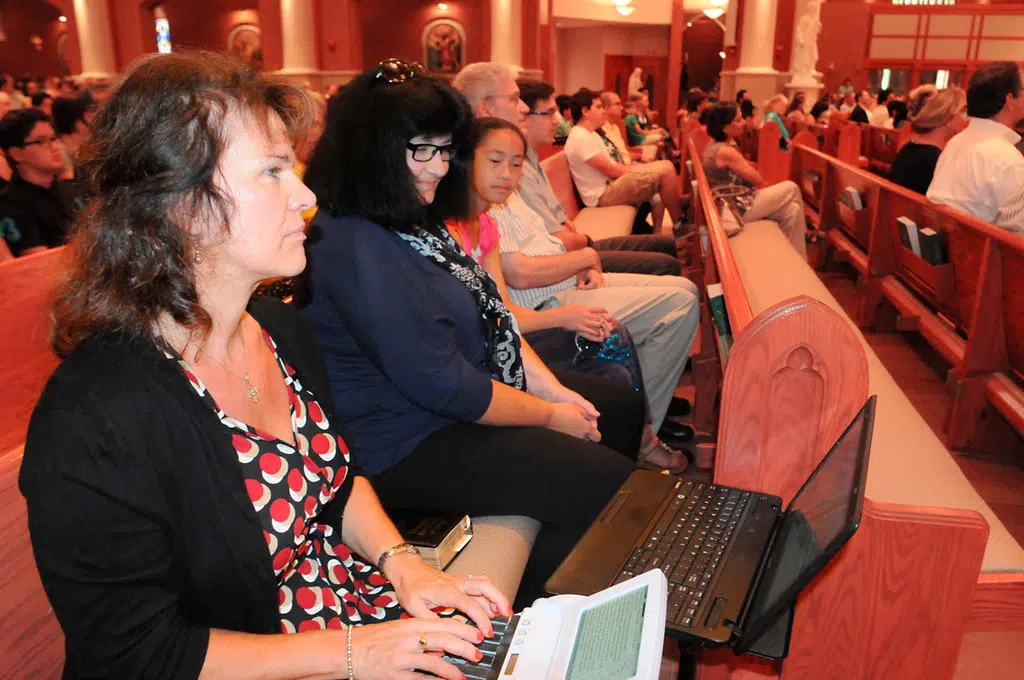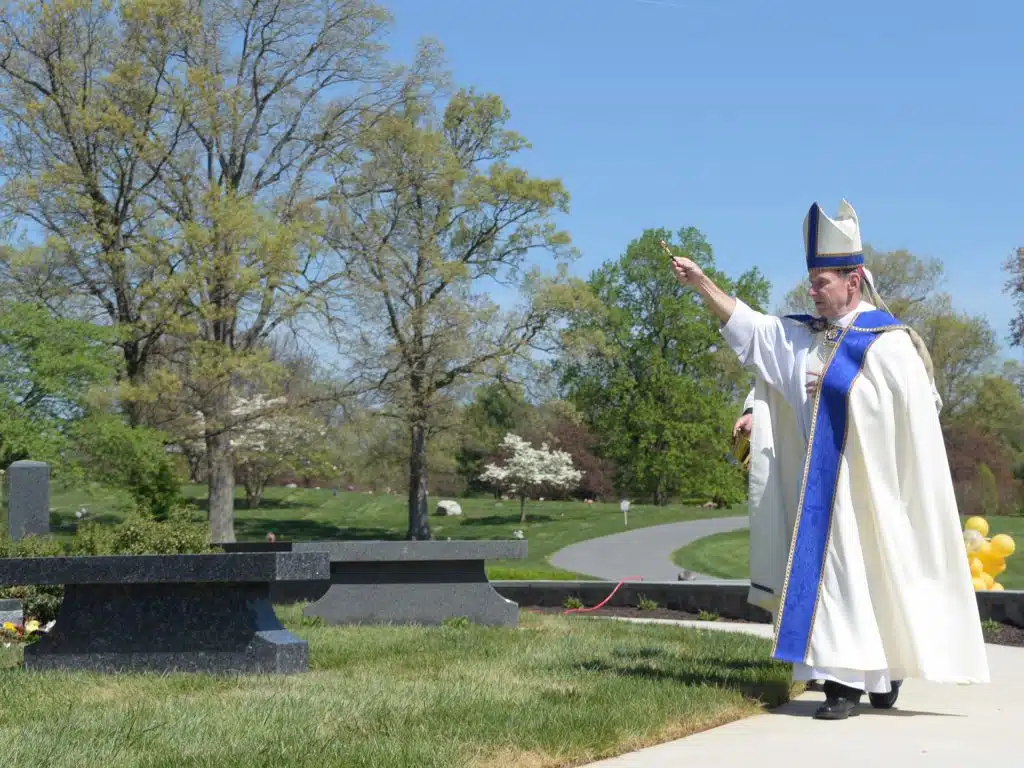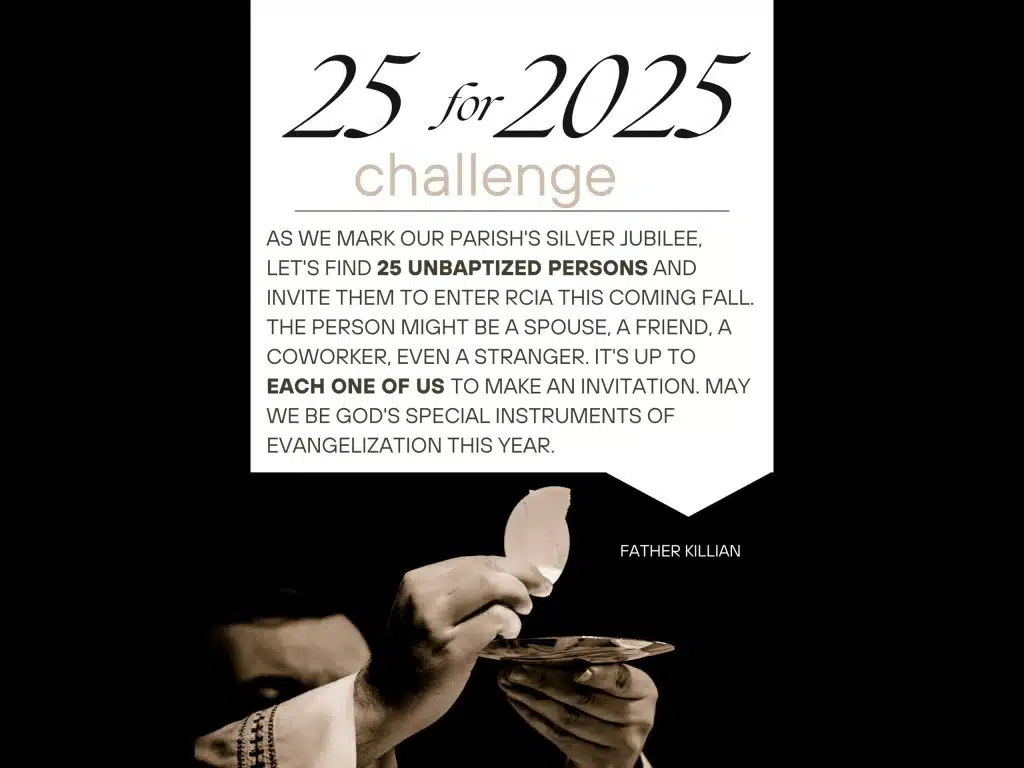The Mass is a spiritual and sensory event where sight, smell,
taste, touch and hearing combine to make the liturgy the
centerpiece of our faith. If one of the five senses is
missing or impaired, it can affect the experience. Some
senses have a more profound experiential impact than others –
hearing is one.
Deafness is a condition that is timeless, and one that is
mentioned in the Bible. The Gospel of Mark describes Jesus
curing a deaf man.
“He took him off by himself away from the crowd. He put his
finger into the man’s ears and, spitting, touched his tongue;
then He looked up to heaven and groaned, and said to him,
‘Ephphatha’ (that is, ‘Be opened’). And (immediately) the
man’s ears were opened, his speech impediment was removed,
and he spoke plainly ” (Mk 7:33-35).
According to the National Institute on Deafness and Other
Communication Disorders, approximately 17 percent of American
adults suffer some degree of hearing loss. Much of the
deafness is age-related. For children, about 2 or 3 out of
1,000 are born deaf.
Arlington diocesan parishes have provided services to the
hearing impaired for years, mostly American Sign Language
(ASL). There are signed Masses at several diocesan parishes,
including Holy Spirit in Annandale, Good Shepherd in
Alexandria, St. Elizabeth Ann Seton in Lake Ridge and Christ
the Redeemer in Sterling.
Donna Gilbertson has been deaf since she was a year old, the
result of a measles infection.
Her husband, Allan, said that the term “hear” has no real
meaning for his wife. He said she’s never been able to hear.
She can perceive some sounds, but it is not intelligible
speech.
She was born Catholic, but moved away from the faith, only to
return about two years ago.
She started going to Mass again, joining St. Joseph Church in
Herndon, but couldn’t understand the homily or announcements.
Signed Masses didn’t help because she does not understand
ASL. In fact, she said that only 10 percent of deaf people
can communicate with ASL.
“You need to be able to connect to the Mass,” she said. “You
need to be able to participate and engage and you need to
witness it, and I had a hard time with that because I would
just sit there.”
Donna Linton is a court reporter and acquaintance of
Gilbertson who has been providing Computer Communication
Access Realtime Translation (CART) services to Gilbertson for
about 10 years. Linton started when Gilbertson was taking
courses at Northern Virginia Community College and continued
to help her with teacher-parent meetings for her children in
school.
Linton said that they would see each other occasionally and
exchange Christmas cards, but that was the extent of their
relationship.
This past April, Gilbertson thought perhaps Linton could help
her more fully experience the Mass. She asked Linton, a
parishioner of St. Theresa Church in Ashburn, to be her
personal CART provider for Mass. Linton accepted.
They asked Father Richard M. Guest, pastor of St. Theresa
Church in Ashburn, if Linton could bring her equipment
(stenograph computer and laptop) to Mass. Father Guest wanted
to make sure the equipment was nonintrusive. He agreed, and
gave them an area in the front, near the right side of the
sanctuary. Gilbertson and her family are active at St. Joseph
Church, but they go to Sunday Mass at St. Theresa.
It’s a one-on-one arrangement, with Linton typing the
priest’s sermon as it’s delivered, and Gilbertson reading the
words from a laptop screen. Linton also will type
announcements like deaths and sicknesses. She’ll add
descriptors to the transcribed homilies like (laughter) to
help give Gilbertson as much of the impact of the homily as
possible.
Gilbertson said that the service Linton provides is better
than receiving a copy of the sermon beforehand, mostly
because many priests speak from notes, not a transcript of
the homily.
“It’s more connecting,” said Gilbertson. “The written
homilies are usually just guidelines.”
Other congregants are curious, but respectful, of the two
women sitting in the front of church – one typing as the
other reads.
Linton said the arrangement benefits them both.
“I’m getting a lot out the Mass personally,” she said.
Gilbertson and Linton said they are not aware of
other dioceses in the region offering this kind of service.
They believe that few, if any, are offered anywhere in the
country. Both women would like to see this service expanded,
but for now they are content for this relationship to make
the holy sacrifice of the Mass more meaningful for both.



